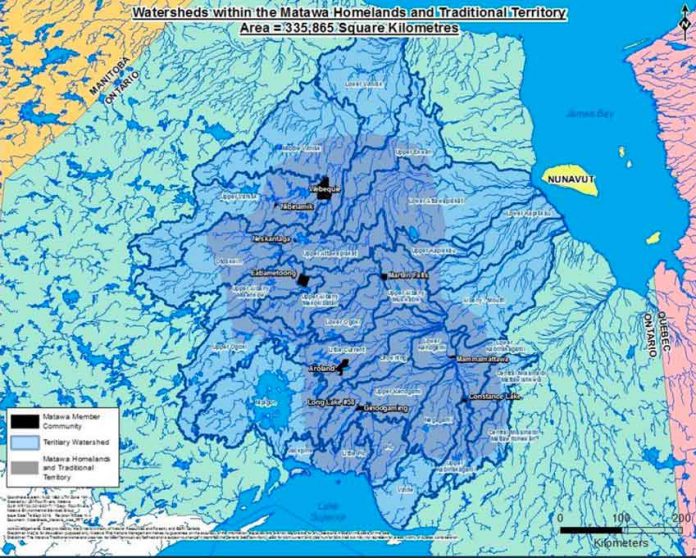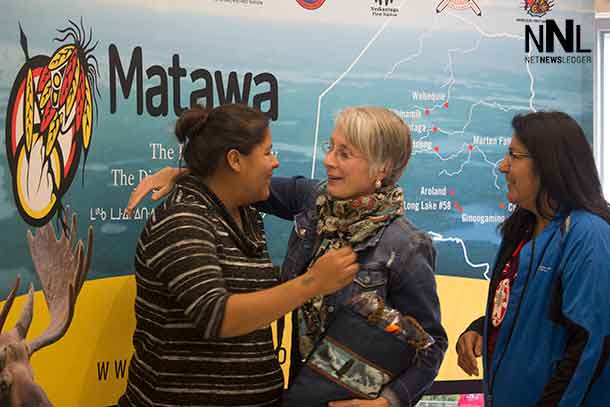
THUNDER BAY – Environment – Four Rivers Environmental Services Group (Four Rivers) have announced they will be working with the Matawa member First Nations on a national watershed research project as part of a first step in increasing capacity to actively steward over 300,000 square kilometres of watersheds within their traditional homelands (see map in Figure 1 and attached). These watersheds have been mostly untouched by development. In addition, no conservation authorities or watershed management plans are in place for the vast majority of the area.
The Matawa Water Futures project (MWF) is a collaborative research project co-led by Four Rivers and Wilfrid Laurier University that seeks to increase capacity to maintain the safety of the water in the face of climate change and potential industrial development. A network of researchers including those from Lakehead and Laurentian Universities will also be supporting the project.
The MWF is part of six new co-led projects across Canada launched by Global Water Futures (GWF), the world’s largest university-led freshwater research program that is currently working to address urgent and growing water quality issues for Indigenous communities. GWF’s overarching goal is to deliver risk management solutions— informed by leading-edge water science and supported by innovative decision-making tools—to manage water futures in Canada and other cold regions where global warming is changing landscapes, ecosystems, and the water environment.
The MWF project will be supported through GWF funding over three years and will be carried out alongside other Four Rivers environmental initiatives including Climate Change Adaptation Projects, Indigenous Guardians Projects and Species at Risk Initiatives that are supported by the Government of Canada. It will result in a cultural framework for watershed monitoring and stewardship that is developed by the Matawa member First Nations, which puts their communities’ priorities, concerns and visions for the future at the forefront. The project includes other capacity building initiatives, including water stories mapping, water gatherings, and a watershed stewardship training certificate program. It is planned to conclude in 2021.
Last month, Four Rivers hosted an Environment Gathering with over 60 delegates attending from across the region. At the gathering, Matawa member First Nation Elders, lands and resources staff, environmental monitors, community communication staff and other interested members began the conversation on watershed stewardship and community-based water monitoring and their vision for the future. The MWF project is part of Matawa First Nations Management’s nation-building process returning to the governance and continued protection of the water. It will include protocols for the documentation and safeguarding of Traditional Knowledge.






